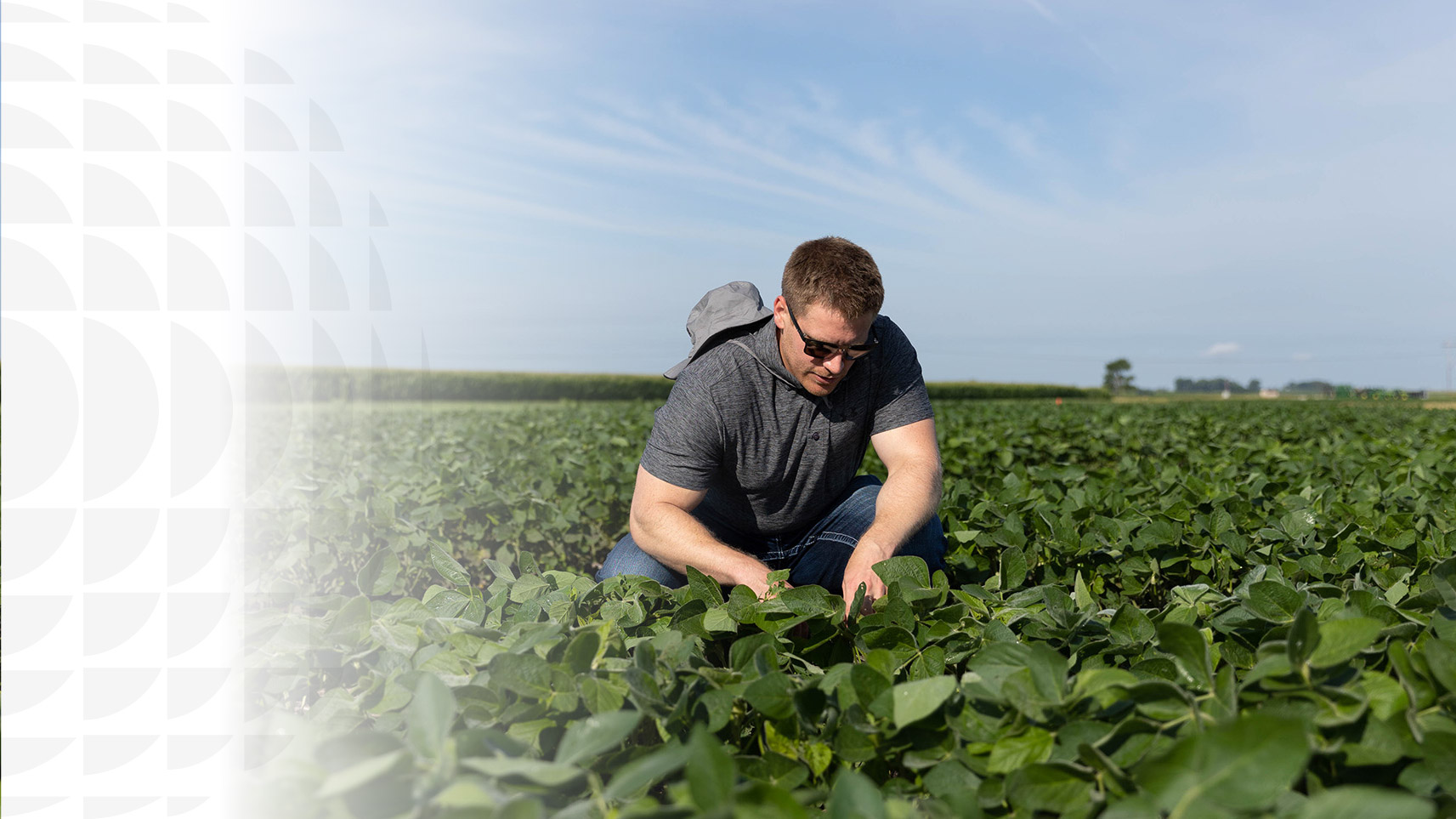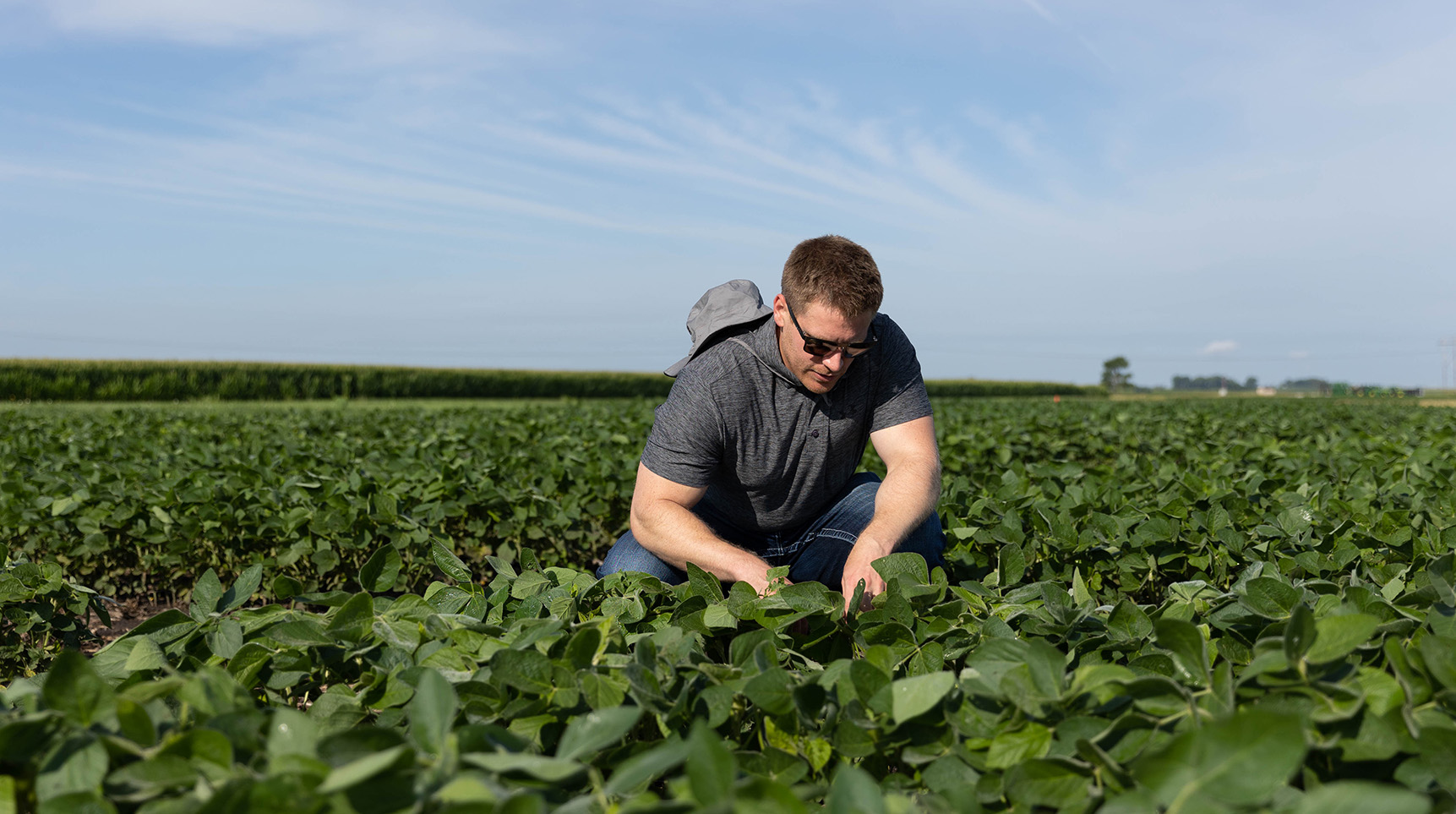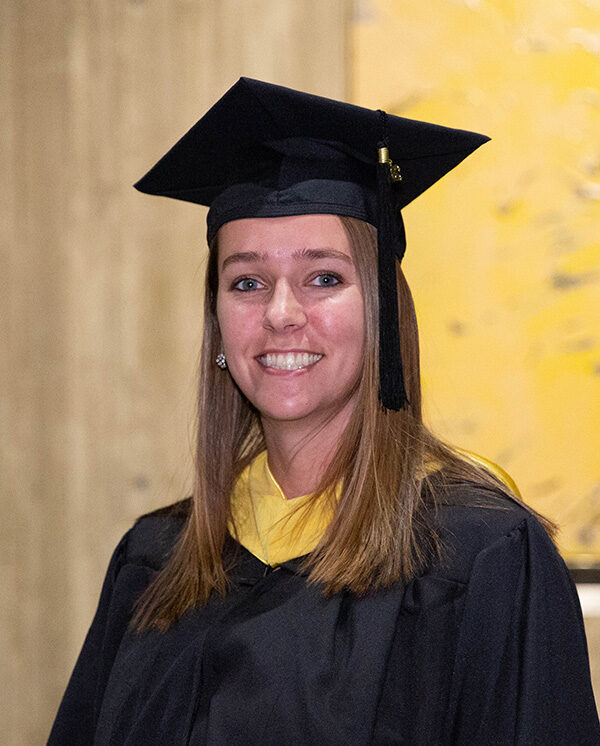Agronomy – Master’s

Agronomy
Advance your agronomy career. Transform global agriculture and environmental well-being. Drive the future of conservation with new methods, improve soil health, and pioneer innovative approaches to bioenergy. Elevate water quality and advance genetic traits to produce food, fuel, and fiber more efficiently and economically. This program empowers you to lead in enhancing sustainable agriculture on a global scale. Get to your next career move with Iowa State.
At a Glance
37
Total Credits
$750*
Cost Per Credit
*Tuition and fee rates subject to change
3 years+
Time to Complete
Grow your expertise, cultivate the future
You’re ready to step up and gain the specialized knowledge to elevate your career. Take that step with Iowa State’s online master of science in agronomy, designed specifically for professionals like you, whether you’re aiming for a promotion or transitioning to a new role. This program equips you with the skills and abilities to solve real-world problems in agriculture.
You’ll connect with industry leaders, enhance your communication skills, and gain the expertise needed to drive the next wave of innovation in agriculture. With a flexible schedule that lets you study while continuing full-time work, you can complete the degree at your own pace, typically in three to five years, and get the expertise needed to lead in your field. Apply now.
Hear from a student
Learning Goals
- Crop science principles: Understand the scientific principles of crop management and physiology, plant improvement, soil management and fertility, integrated pest management, and the interaction of these principles.
- Research evaluation: Critically evaluate research in terms of design, content, potential application, and limitations concerning agronomic systems.
- Real-world application: Apply agronomic knowledge to real-world problems using scientific principles.
- Goal facilitation: Understand group dynamics and facilitate the accomplishment of individual and collective goals.
- Effective communication: Communicate successfully with scientists, farmers, other professionals, and the public.
Sample Program
- 5010 Crop Growth and Development – 3 credit
- 5020 Chemistry, Physics, and Biology of Soils – 3 credits
- 5120 Soil-Plant Environment – 3 credits
- 5130 Quantitative Methods for Agronomy – 3 credits
- 5030 Climate and Crop Growth – 3 credits
- 5110 Crop Improvement – 3 credits
- 5310 Crop Management and Ecology – 3 credits
- 5440 Host-Pest Interaction – 3 credits
- 5990M Creative Component Seminar – 1 credit
- 5940 Agronomy M.S. Practicum – 1 credit
- 5320 Soil Management – 3 credits
- 5910 Agronomic Systems Analysis – 3 credits
- 5920 Current Issues in Agronomy – 3 credits
- 5990M Defense Creative Component – 2 credits
More Information
- Format: Hybrid with one on-campus practicum
- Enroll: Fall, Spring, and Summer
Application deadlines
- Fall, Spring, and Summer: Rolling Admission
Contact Information
MS Agronomy Program
1126D Agronomy Hall
(515) 294-2999
msagron@iastate.edu
Dr. Mary Wiedenhoeft
Director of Graduate Education
515-294-3274
mwiedenh@iastate.edu
Iowa State Online
515-294-3916
iowastateonline@iastate.edu
Related Online Programs
Father, agronomist, and graduate

Jordan Hauck’s path to success through online education with Iowa State Online
In a journey of resilience and determination, Jordan Hauck, a new father, agronomist, and graduate, discovered a path to success through Iowa State University’s master’s in agronomy program.

“The coursework met all of my expectations. The professors were flexible and willing to work with students. They really understood the fact that we were working full time, have families, have lives, some students lived in a different time zone, and life happens.”
Lauren Botine, MS Agronomy, ‘22
Industry Facts:
-
Good to Excellent
The five-year job market outlook for professionals with a master’s degree in agronomy is good to excellent, according to AgCareers.com.
-
6%
The U.S. job growth outlook for agronomists is expected to be twice the average rate, reaching 6% through 2032, according to the Bureau of Labor Statistics.
Career Path Opportunities
A master’s degree in agronomy gives agronomists, soil and plant scientists, and technologists the skills to advance. A degree from Iowa State provides opportunities for advancement in both public and private settings.
Sectors:
- Scientific research and development in new management systems and technologies
- Agricultural marketing and retail sales
- Management
- Land and conservation
- Colleges, universities, and professional schools
- State and local government
- Private enterprise
- Food production and processing
- Farming
Specializations:
- Crop productivity and management, plant breeding, and plant nutrition
- Sustainable development
- Natural resource conservation
- Education, training, outreach, and technical assistance
Admission Requirements
Graduate College Requirements:
- 4-year bachelor’s degree (or equivalent)
- Academic Records/Transcripts
- Minimum 2.8 GPA (as required by the program)
- Proof of English Proficiency
Program Specific Requirements:
- Application.
- Statement of Purpose
- Letters of Recommendation
International Student Requirements:
Specific requirement details can be found on the the Graduate College website and Department of Agronomy website.
Learn from the best in the field
Our faculty consistently contribute to research that ensures a more sustainable, resilient, and productive global agricultural system. Their work is essential for addressing the growing demand for food while addressing environmental and socio-economic issues.
Here’s what some of our faculty are working on:
- Sotirios Archontoulis seeks to understand how combinations of crops, tillage and fertilizer, different soils, and water affect cropping systems’ productivity and environmental performance to improve agricultural sustainability and overall yield.
- Mike Castellano is focused on developing tools to use data for making better nitrogen fertilizer management decisions that will affect farmers’ operations and the environment for years to come.
- Mark Licht, an Extension cropping systems specialist, is focused on how to holistically manage Iowa cropping systems to achieve productivity, profitability, and environmental goals.
- Arti Singh, using AI image recognition technology trained on millions of insect images, is part of a team that has developed an app that accurately identifies agricultural pests. This tool can aid farmers in making informed pest management decisions and has broader implications for agricultural productivity and environmental protection.

Take the next step
Anything is possible at Iowa State University with innovative academic programs, hands-on research opportunities, and globally recognized scholars to support you every step of the way.
